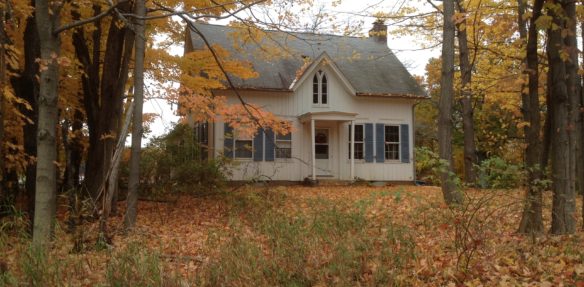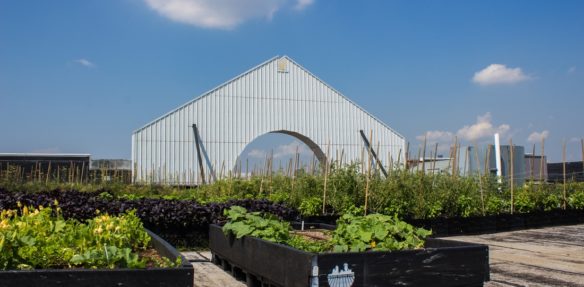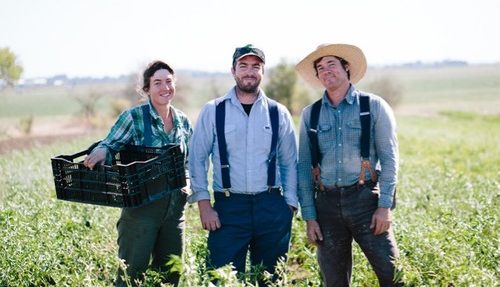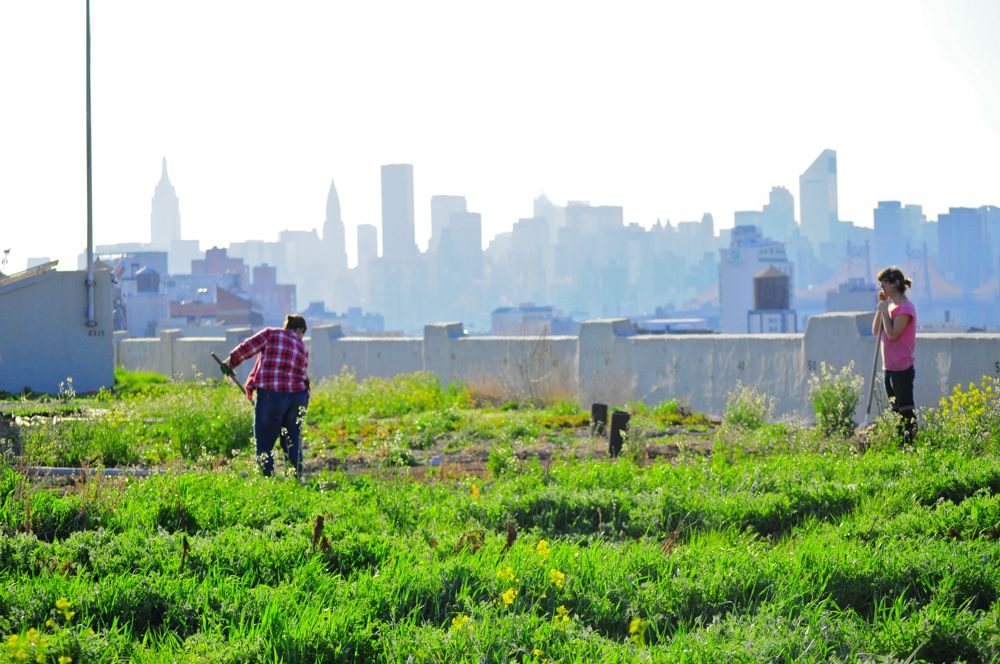
Background
Ben Flanner has an engineering background. After a work trip to Australia, and visiting farms on weekends, Ben realized he did not want to spend his life behind a desk. He and his colleagues formed Brooklyn Grange LLC with the express purpose of finding a rooftop space to farm. They found it on top of an industrial building in Long Island City, New York, just across the 59th Street Bridge from Manhattan. The rooftop is 43,000 square feet, which is about an acre. Their original lease was for 10 years, beginning May 1, 2010, and in 2016 they signed a lease extension until April, 2025.
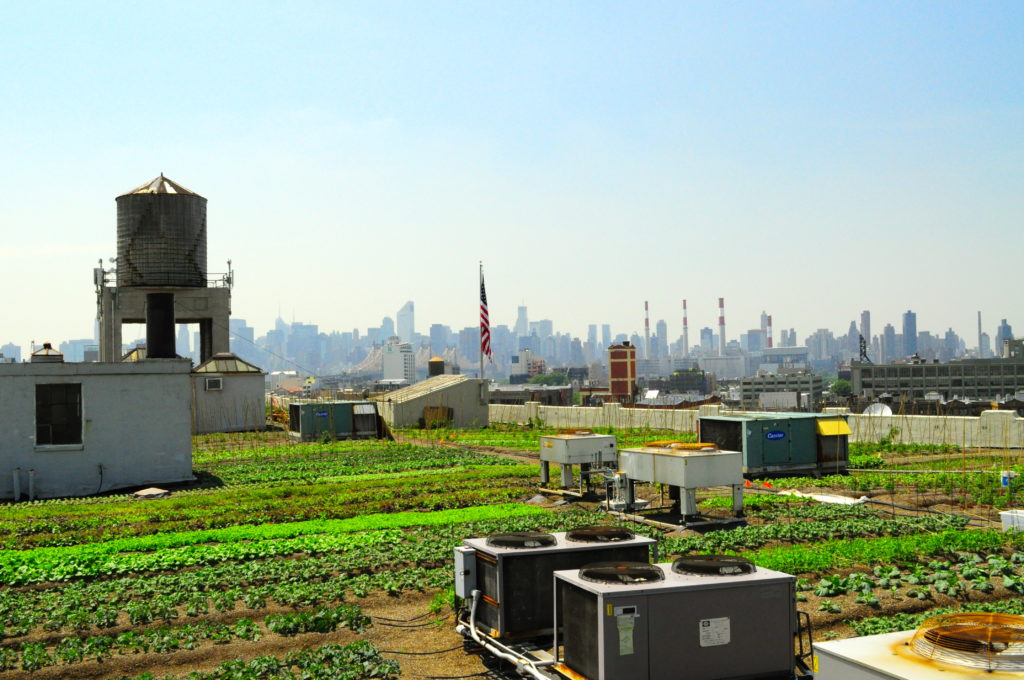
Getting Started & Finding Space
Ben recalls that finding the right rooftop space was challenging. There was a lot of interest, but it wasn’t easy to lock in an agreement. For example, early in 2010 he and his colleagues were looking at a rooftop that had 25,000 square feet in Brooklyn. After multiple conversations with the landowner, negotiations broke down over financial terms. Unable to agree, both parties walked away from the deal.
However, soon after, Brooklyn Grange’s co-founders identified a rooftop space almost twice as big (43,000 square feet) that was ideal for the kind of operation they hoped to run, and was at the right price. Their plan from the beginning was to net enough revenue by hosting agritourism-type events on the rooftop (dinners, weddings, workshops, farm tours) to cover their rent, so that they didn’t have to rely on revenue solely from the sale of farm produce.
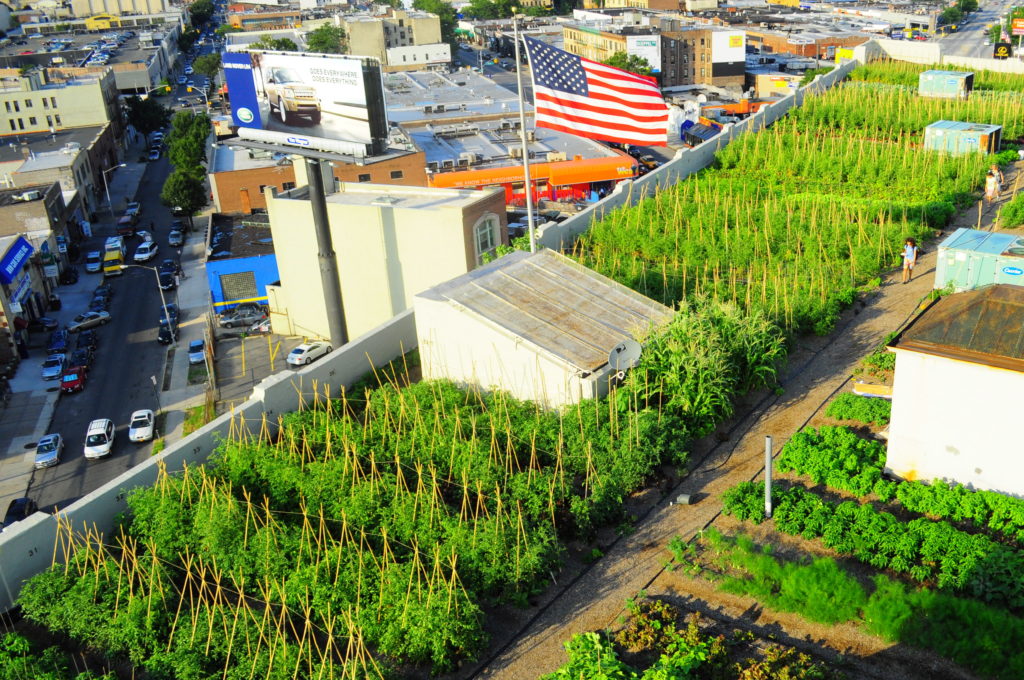
Lease Length
Ben stresses that lease length was key to the business’ ability to invest in the rooftop farm and make capital improvements. Upon signing the lease in 2010, he and his colleagues made major investments in the business, including installing the green roof, bringing soil up to the roof, building a washing/packing station, installing storage and refrigeration units, erecting a structure for events, and buying basic tools. In 2016, when Brooklyn Grange realized they had only three years remaining on their lease, they hesitated to make any additional capital improvements to the property. At this time, the landlord was in the process of selling the building, and Brooklyn Grange was able to renegotiate the lease with the new landlord. Among other things, they obtained a five-year extension, giving Brooklyn Grange the assurance that they could continue to invest in the farm and recoup their investments.
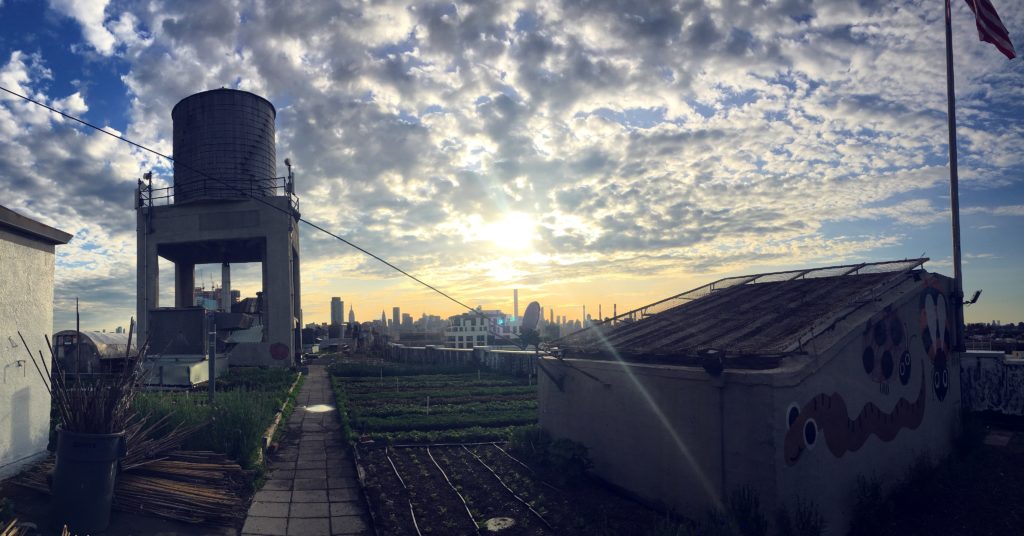
New Negotiation
The new landlord also looked hard at the existing terms, reining in any loose language in the lease and terminating a few “handshake deal" arrangements the farm had enjoyed under the prior ownership.
There were also some necessary upgrades and improvements to the building that needed to be addressed. Brooklyn Grange and their new landlord disagreed over interpretations of the lease regarding which party would pay for these upgrades. The matters (described below) were compromised and settled amicably, but Ben notes the importance at the outset of any lease that both parties be clear on who has to pay for each and every expense – ranging from improvements to permanent fixtures to repairs necessary due to tenant use.
First, Brooklyn Grange’s original lease contained a provision allowing the landlord to terminate the lease at the landlord’s option, for any reason, after the second year of the lease and with 90 days’ notice. This provision caused Ben and his colleagues to be wary of making capital improvements and decreased their ability to negotiate during the lease term, because they were always worried that the landlord could terminate the lease at any time for any reason. The farmers negotiated for the deletion of this provision from the lease.
Second, Brooklyn Grange’s original lease also permitted them to hold various educational activities on the property, such as workshops and farm tours, and other agritourism-related activities, such as farm dinners and weddings. However, the lease also provided that the landlord would collect a percentage of all non-farming revenues. Ben’s original landlord had never collected funds under that provision, but the new landlord wanted to adhere to those terms. Ben and his team were able to renegotiate the terms of that provision so that the landowner would only collect a percentage of the revenue if non-farming revenue exceeded a certain amount in a given year. Ben suggests that for farmers who plan to engage in non-farming revenue-generating activities, this could be a way to reduce their base rent in exchange for the possibility of additional rent based on having successful events.

Transferability Concerns
Ben advises that during the negotiation of the lease, farmers should determine whether it is important for business reasons to be able to transfer their farm operation during the term of the lease. Especially when large capital improvements are made to a property, those improvements may be permanently fixed. During the course of a long lease, many things can change, so it may be wise to negotiate the ability to transfer or sell a lease in order to increase a farmer’s chances of recouping some of their expenses. Ben recently negotiated a 20-year lease for a new project at a different location. While the length of the lease gives him a lot of confidence for the business and allows him to think long term, he and his partners also put a lot effort into negotiating the ability to transfer their lease before the 20-year term expires. The landlord needs to approve the transfer but cannot withhold consent unreasonably.
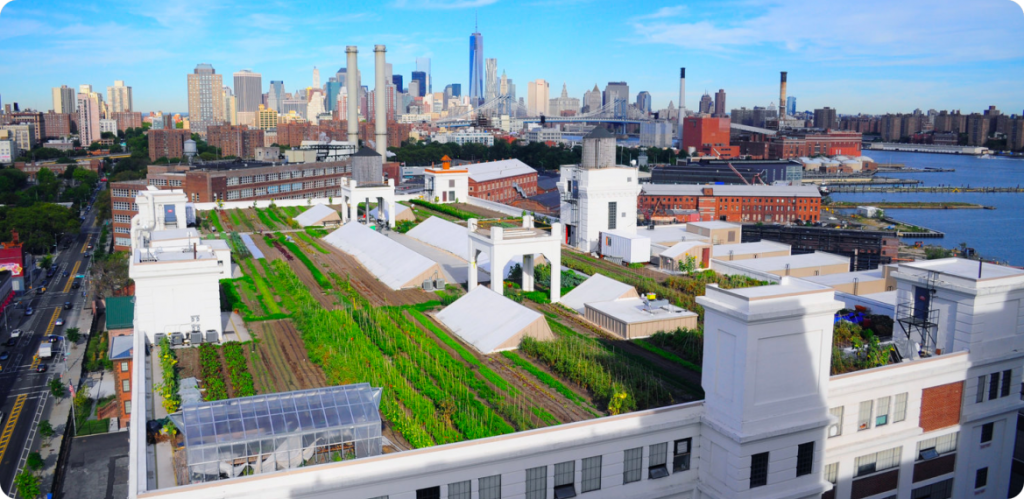
Conclusion
Via trial and error, Ben feels he and his colleagues have gained tremendous knowledge about rooftop farming, and they have also begun a consulting business to assist other farmers in their endeavors. Brooklyn Grange provides advice on lease negotiations, crop planning, farming, and creating an events business. (Note that since this interview was completed, Brooklyn Grange has added two additional rooftop farms; see their website for details.)
Ben advises that a farmer leasing land – be it rooftop or ground level acreage – do as much research as possible on similar situations and successful projects in order to give farmers an idea of the types of agreements other tenants and landlords have entered into.
